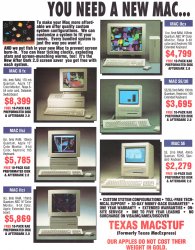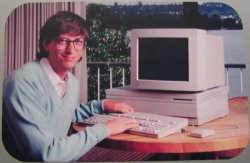Sadly I suspect that you are right. But the problem Apple may face is that they have to maintain a big enough user base for companies like Adobe to bother to update their Mac versions of software. Already the pc version of CS4 is more advanced than the Mac version.
A high priced mac pro may be acceptable (reluctantly) to pros who have a big investment in software and training in place but it will not be tempting to switchers from the pc world and gradually even pros may make the switch away from Apple if they think that support is diminishing. But I suspect that Apple are not that bothered. They would prefer to just sell consumer products but will keep a nominal pro presence because it would be bad PR to drop the line completely.
I think that you have hit the nail on the head of what Apple could be facing in the future if they do not seriously address the issues that many of you are discussing here with respect to maintaining a commitment to the professional users.
As a recent example of removing the express card slot in the MacBook Pro in favor of a SD card reader slot. Now the pros that counted on the express card slot to insert a Sata port to have the possibility of a portable raid solution for external drives when traveling is SOL. Seriously, when Apple does this, or make only glossy screens for the MacBook Pro, that takes the "Pro" out of the equation.
Alienate enough pro users long enough and they will start thinking of going over to the PC side to get to hardware they need. If that trend ever got going and was persistent - Adobe would drop Apple as being irrelevant to a return on their investment. Very little in the way of updates and continuing support for the Mac Pro supporter at that point.
Apple would be then left with only the consumer. However, the consumer I'd say has just about bought up all the technology they need for the less demanding things they do now. They will not be back soon in this economy to keep upgrading. Apple's consumer hardware sales might be at a plateau now. If they want to even maintain what they have accomplished, I think they need to rethink who their core supporters are in the long term.
Mike



